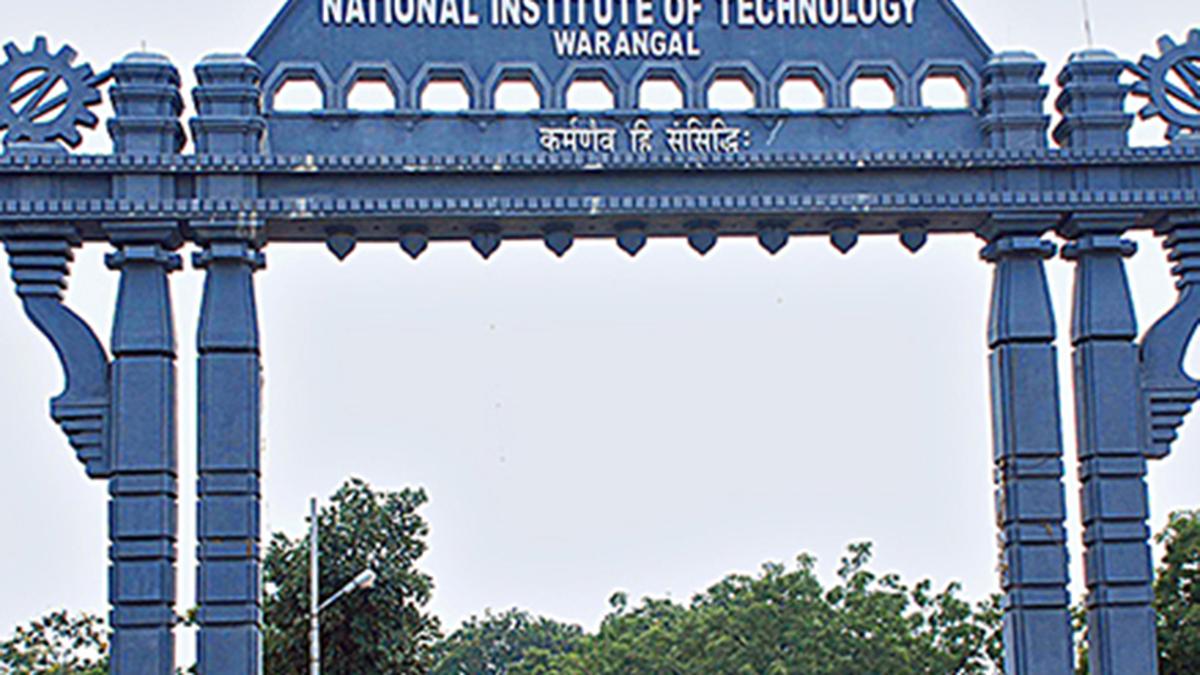
NIT-Warangal’s 21st Convocation: NITI Aayog member V.K. Saraswat underlines importance of innovation
The Hindu
India can become HR capital of world: Saraswat at NIT-Warangal convocation. NIT-Warangal's research environment maturing, leading to incubation of startups by students and faculty.
To thrive and excel in today’s competitive environment, innovation, knowledge generation with value addition and translational research are the new mantras, said NITI-Aayog member V.K. Saraswat on Saturday.
Delivering the 21st convocation address at the National Institute of Technology (NIT-Warangal) here, Mr. Saraswat said, “Innovation has the power to transform societies, economies and quality of lives. India has a long and rich history of innovation from ancient discoveries in mathematics, astronomy and other sciences.”
Though India is currently ranked 40th out of 132 countries on the global innovation index, in the quest to become the global innovation, entrepreneurship and technology hub, India faces several challenges, most notable of which is the lack of access to capital and the dearth of a robust ecosystem for intellectual property protection, he noted.
He added that efforts are needed to prioritise the development of skills and talent that are necessary for innovation. One of the key drivers of this innovation ecosystem is our youth population.
Underlining the importance of ‘Transformation through youth participation’, he said, “With more than 600 million people under the age of 25, we have a unique opportunity to harness the potential of our demographic dividend and create a culture of innovation and entrepreneurship.”
India can become the human resource capital of the world. As our honourable Prime Minister says the government is trying to make a new India with the dream and participation of its youth.
Mr. Saraswat further said the successful launching and landing of Chandrayaan-3 by ISRO and the exhaustive analysis of lunar surface characteristics and successful interception of a satellite in LEO by a ground-launched interceptor under Mission SHAKTI by DRDO has already put the country at the forefront of technology developments. This exhibits the indigenous capability of our scientists and engineers.

“Writing, in general, is a very solitary process,” says Yauvanika Chopra, Associate Director at The New India Foundation (NIF), which, earlier this year, announced the 12th edition of its NIF Book Fellowships for research and scholarship about Indian history after Independence. While authors, in general, are built for it, it can still get very lonely, says Chopra, pointing out that the fellowship’s community support is as valuable as the monetary benefits it offers. “There is a solid community of NIF fellows, trustees, language experts, jury members, all of whom are incredibly competent,” she says. “They really help make authors feel supported from manuscript to publication, so you never feel like you’re struggling through isolation.”

Several principals of government and private schools in Delhi on Tuesday said the Directorate of Education (DoE) circular from a day earlier, directing schools to conduct classes in ‘hybrid’ mode, had caused confusion regarding day-to-day operations as they did not know how many students would return to school from Wednesday and how would teachers instruct in two modes — online and in person — at once. The DoE circular on Monday had also stated that the option to “exercise online mode of education, wherever available, shall vest with the students and their guardians”. Several schoolteachers also expressed confusion regarding the DoE order. A government schoolteacher said he was unsure of how to cope with the resumption of physical classes, given that the order directing government offices to ensure that 50% of the employees work from home is still in place. On Monday, the Commission for Air Quality Management in the National Capital Region and Adjoining Areas (CAQM) had, on the orders of the Supreme Court, directed schools in Delhi-NCR to shift classes to the hybrid mode, following which the DoE had issued the circular. The court had urged the Centre’s pollution watchdog to consider restarting physical classes due to many students missing out on the mid-day meals and lacking the necessary means to attend classes online. The CAQM had, on November 20, asked schools in Delhi-NCR to shift to the online mode of teaching.









